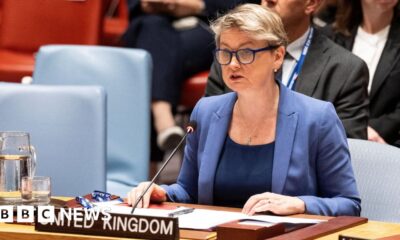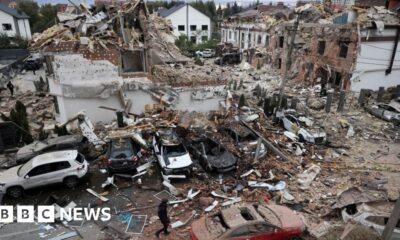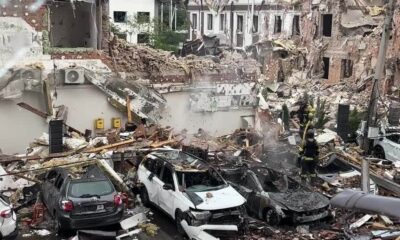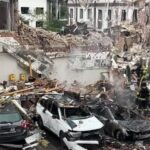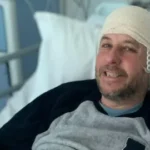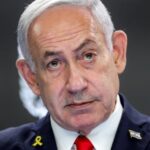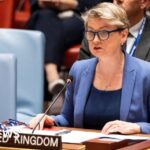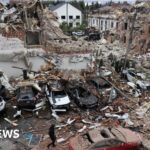Breaking News
Crisis in Israel could shape country for generation
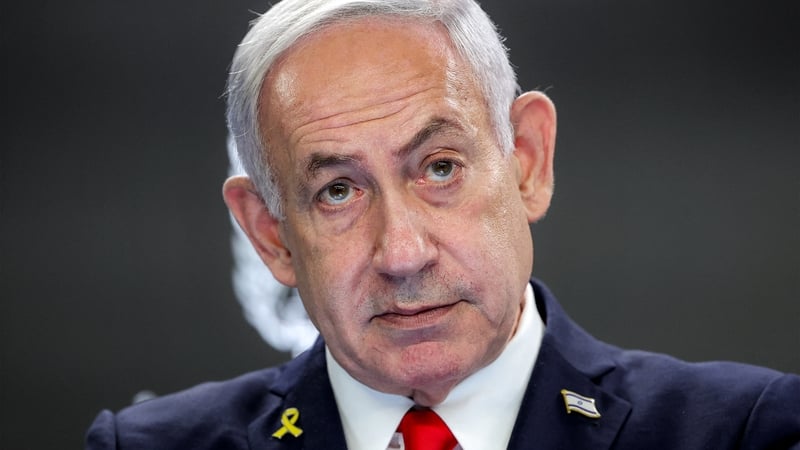
Read more on post.
Israel is in the grip of an internal and external crisis that could shape the country for a generation.
It has become increasingly isolated internationally, with 150 countries now recognising a Palestinian state, and economic, cultural and sporting boycotts are mounting.
Domestically, while the sense of national cohesion following the trauma of the 7 October attacks is holding up, there are deepening cracks in the consensus thanks to the increasingly divisive policies of Israeli Prime Minister Benjamin Netanyahu and his handling of the Gaza war and the hostage situation.
In July, the Israeli Democracy Institute (IDI) found that only 40% of the public had trust in Mr Netanyahu, despite the 12-day Israel-Iran war, which commanded broad public support.
While the poll suggested Mr Netanyahu’s base was intact, he was losing support among moderates, most likely because of the failure to bring home the hostages.
Last month, the IDI found that two-thirds of the public would support a deal involving the release of all hostages in exchange for an end to the war and the withdrawal of the IDF from Gaza.
Yet, around half of all Jewish Israelis (49%) supported the security cabinet’s decision in August to expand the military operation in Gaza “including taking and holding territory”.
Israelis appear to be retrenching into competing blocs, with the left ever more hostile to the war and Mr Netanyahu, while the right embraces increasingly hardline attitudes to Palestinians both in Gaza and the West Bank.
Despite that, the number of Jewish Israelis who believe society can sustain the burden of fighting the Gaza war has fallen from 40% in March 2024, to 28% today.
“There has been a consensus around [prioritising] the hostages of between 70% to 75% for the past year,” says Tal Schneider, political correspondent at the Times of Israel.
“At the beginning [of the war], people believed you needed to finish the job inside Gaza. But now, for at least a year, or year and a half, all polls suggest you need to get the hostages out first.
“People are willing to see the war end, even if Hamas is not completely done. As long as you have living Israeli people inside Gaza, you cannot conduct a war like that, because you’re going to hurt them.”
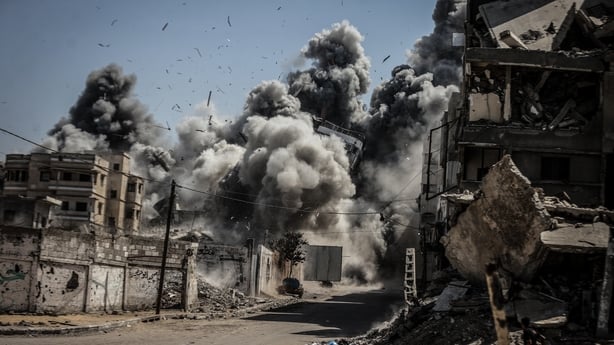
War fatigue is not the same as a shift in attitudes towards the Palestinians, and poll after poll shows that trust between both sides has evaporated.
In June, the Pew Research survey found that only 21% of Israelis agreed that “peaceful coexistence with a Palestinian state is possible,” the lowest level since 2013.
In September last year, a poll by the Palestinian Center for Policy and Survey Research (PCPSR) and Tel Aviv University found that most Israelis believed terror attacks on Israel would persist or increase if a Palestinian state were established.
A survey of Palestinians in Gaza in May by the PCPSR found that although support for 7 October had declined from 64% last September, some 59% still believed Hamas was correct to launch the attack, with almost two-thirds believing it had “revived international attention to the Israeli-Palestinian conflict and that it may lead to increased recognition of the Palestinian state”.
That said, 87% of Palestinians in Gaza surveyed did not believe Hamas had carried out the atrocities captured on video on 7 October.
Hamas’s own pronouncements have been highlighted by Israelis who say they are horrified by the international clamour for a Palestinian state.
Read more: West Bank – Tales of the dispossessed
On 2 August, Ghazi Hamad, a senior Hamas official, told Al Jazeera that “the initiative by several countries to recognize a Palestinian state is one of the fruits of October 7. We proved that victory over Israel is not impossible, and our weapons are a symbol of Palestinian dignity”.
Benjamin Netanyahu clearly aims to play up these fears as he navigates increasingly narrow political terrain.
His rhetoric at the UN General Assembly on Friday suggests he is tacking hard to the right, describing acceptance of a Palestinian state as “national suicide” and declaring, to a largely empty chamber, that “Israel will not allow you to shove a terror state down our throats”.
Mr Netanyahu has even suggested Israelis should tough it out and weather the storm, depicting the country as a “Super Sparta”, an austere, militarised, self-isolated and self-sufficient society.
On 17 September, he launched a programme to make Israel less reliant on the United States for weapons, declaring that it would “build an arms industry that will match the best arms industries in the world with one proviso”, that they want to produce first for themselves “on a much larger scale and with unimaginable innovation”.
While senior military figures have publicly expressed alarm at Mr Netanyahu’s expansion of the ground offensive into Gaza City, other leading voices from the security establishment have spoken of a paradigm shift.
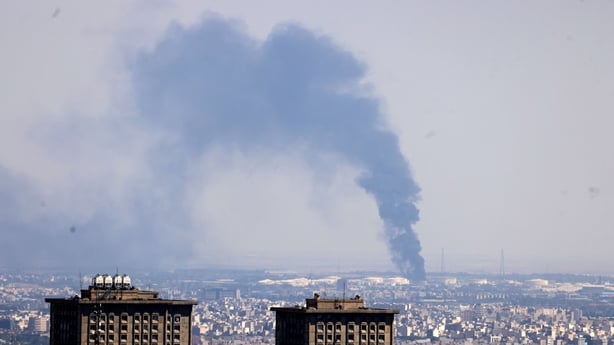
In the past Israel used its overwhelming superiority to deter its enemies; now it must use that force to defeat them.
Across the region, this is reflected in Israel’s withering assault on Hezbollah in Lebanon, and the 12-day war against Iran, in which it is thought to have seriously degraded its nuclear programme.
In Gaza, according to Meir Ben-Shabat, a former national security advisor, and Asher Fredman, former Israeli chief of staff, Israel should apply this doctrine to the hilt without fear of international outrage, or even criticism from the United States.
“In the current moment,” they wrote this month in Foreign Affairs, “Israel must prioritize its war aims even at the cost of external criticism. Allowing Hamas to remain the dominant military and governmental power in Gaza, either de jure or de facto, is unacceptable. The full demilitarization of Gaza, which requires military force, is the only way to keep Israel truly safe.”
That national obsession with “safety” is key to understanding the current Israeli mindset. Israel has long felt surrounded by enemies bent on her destruction, and 7 October intensified that view; Israelis will frequently tell you that Hamas will do the same again, given half a chance.
So, while a growing number of Israelis oppose the war, and are mindful of the humanitarian catastrophe unfolding in Gaza, many remain sceptical about the death toll, or see the endgame through the prism of their own suffering.
“They think it’s gone too far,” says Tal Schneider, of the Times of Israel.
“It’s hurting Israel on so many levels, and we cannot go on like this, both on the humanitarian side, but also for Israeli people [themselves]. They look at their own, they look at the soldiers, the families of the reservists, and obviously the hostages.
“Even economically, we cannot go on like this, with the international isolation, the rise of anti-Semitism around the world. It’s all part of the same problem. We need to end it.”
Israel’s growing isolation is understood to be one of the motivating factors in Donald Trump’s 21-point peace plan, in reality a concoction of pre-existing drafts, which he circulated to Arab and Muslim leaders at the UN on Wednesday.
The plan involves the release of all remaining hostages, a permanent ceasefire, the gradual withdrawal of the IDF from all of the Gaza Strip, a post-war plan that includes a governing mechanism in Gaza without Hamas and a security force that would include Palestinians but also soldiers from Arab and Muslim countries.
Gulf states would fund the new administration and help with reconstruction; there would be some involvement for the Palestinian Authority.
Those in attendance on the Arab and Muslim side are said to have responded positively, on the condition that Israel would not annex parts of the West Bank or Gaza and that humanitarian aid to the enclave immediately increase.
While Mr Netanyahu’s far-right allies Bezalel Smotrich and Itamar Ben Gvir continue to clamour for annexation and settlement expansion in the West Bank, he cannot afford to ignore the hardening position of Gulf Arab states.
President Trump regards the Abraham Accords, which restored diplomatic and economic ties between Israel and a number of Arab states, as a signature success of his first term; those accords will be in jeopardy if annexation goes ahead.
“There was a plan for a reduced cabinet meeting – without Smotrich and Ben Gvir – to discuss potentially annexing certain parts of the West Bank,” says one Western diplomat.
“The meeting was cancelled because the [United Arab] Emirates said, for us, this is a red line, and if you do it we may have to reconsider our Abraham accord and go back to square one.”
Israel is also feeling European pressure, despite the narrative that the EU has not been tough enough.
Even if Germany and Italy have blocked a move to suspend Israel’s participation in the Horizon Europe programme, from which Israeli companies and research facilities have benefitted to the tune of €1.1 billion, a number of partner companies, particular from Belgium and the Netherlands, have suspended cooperation out of fear that dual-use goods are involved.
As more countries recognise Palestine, they will be under pressure to recalibrate their willingness to take action against Israel, given the new reality that when one state takes allegedly offensive action against another it may require a stricter legal response.
For the families of the remaining hostages in Gaza, only around 20 who are assumed to be alive out of the 51 remaining, Mr Netanyahu’s uncompromising pitch to the far-right, and his lack of a game plan to end the war, is prolonging their sense of trauma.
“There is one and only one option for a ceasefire and a deal that would bring back all the hostages,” says Udi Geron, whose cousin Tal Haimi was shot dead by Hamas on 7 October and whose body was then abducted into Gaza.
“I will know that this will be in place when I hear Prime Minister Netanyahu saying: we are done, we are going to end this war in order to return all the hostages,” he tells RTÉ News.
“Or until I hear Donald Trump saying: this war is over, I have brokered the deal that brings back all the hostages, and this is what’s right for the region, right for the US, right for the stability of the Middle East – until one or the other says this, then the rest is just dust in the wind.”
Breaking News
SF calls for €100k NMH bike shed tender to be scrapped
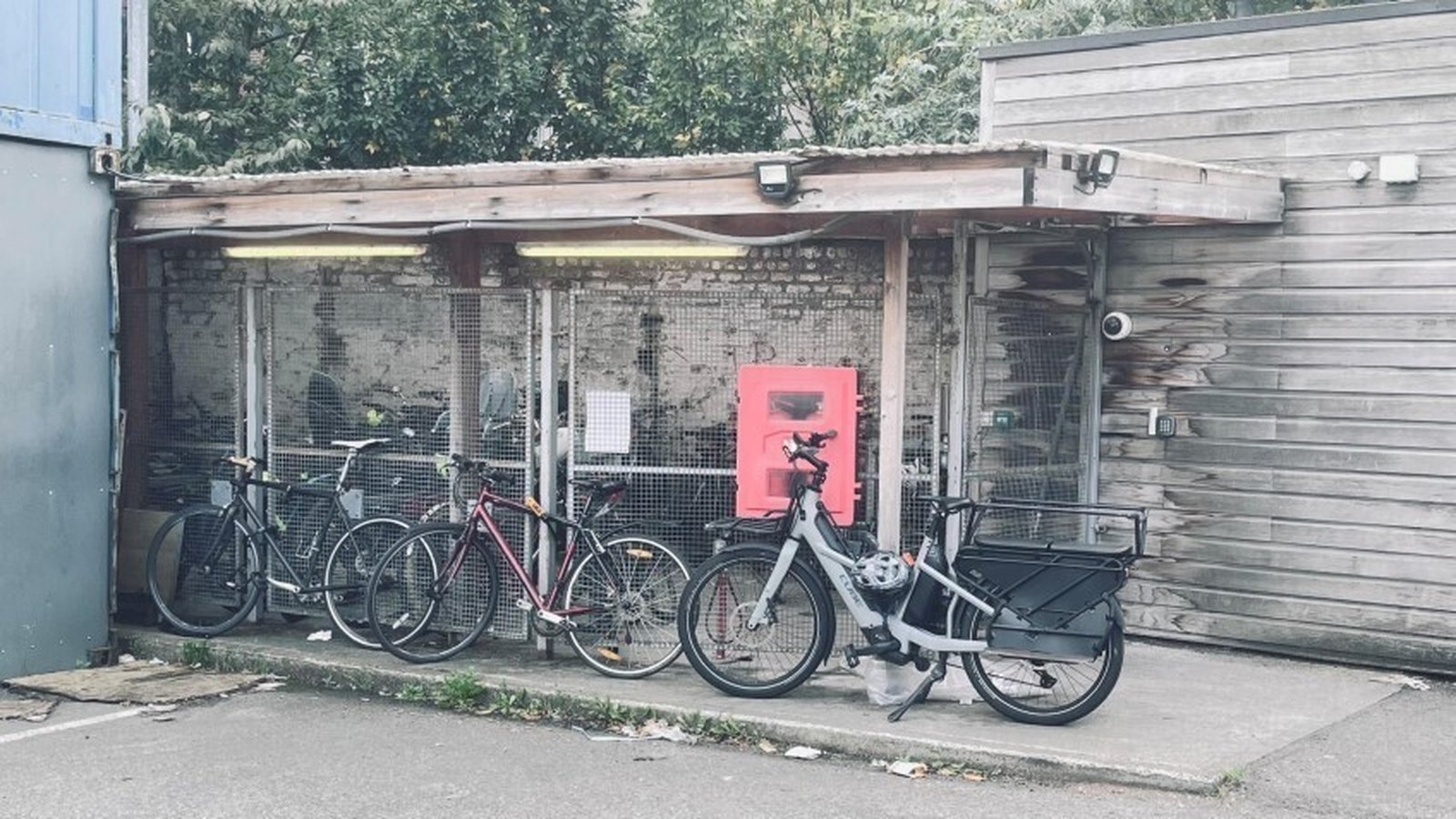
Read more on post.
Sinn Féin has called for a tender for a new €100,000 bike shed at the National Maternity Hospital to be scrapped.
A notice on the Government’s e-tenders website invites submissions for tenders to destroy the old shed and build a new one at an estimated cost of €100,000.
Sinn Féin’s Finance Spokesperson Pearse Doherty labelled the plan for a new bike shed as “outrageous” and referenced a previous controversy when €335,000 was spent on a bike shed at Leinster House.
The €100,000 tender for the proposed bike shed at the National Maternity Hospital includes destroying the existing bike shed and taking away all rubbish.
It is to cover the build of the replacement shed and includes sensor lighting.
So remember the bike shed that Fianna Fáil and Fine Gael wasted €335,000 on?
We just found out tonight that €100,000 of taxpayers money is to be spent on another bike shed at the National Maternity Hospital.
It is outrageous wasting money like this when so many people are… pic.twitter.com/N9LVguAcHI
— Pearse Doherty (@PearseDoherty) September 27, 2025
It also covers improvement to the ground so that it is entirely even and any tree stumps that are in the way are removed.
In May, a report into the bicycle shelter installed at Leinster House found that there was an “absence of some fundamental good practices”, including a value for money assessment, ahead of the project’s construction.
The conclusion is made in a Deloitte audit for the Office of Public Works.
The audit was sought by the Government and the OPW after Opposition outcry over the bike shelter.
The costs include €284,000 spent on construction and installation, €10,000 on contract administration and €4,000 on archaeological services.
Breaking News
Russia launches major drone, missile attack on Ukraine
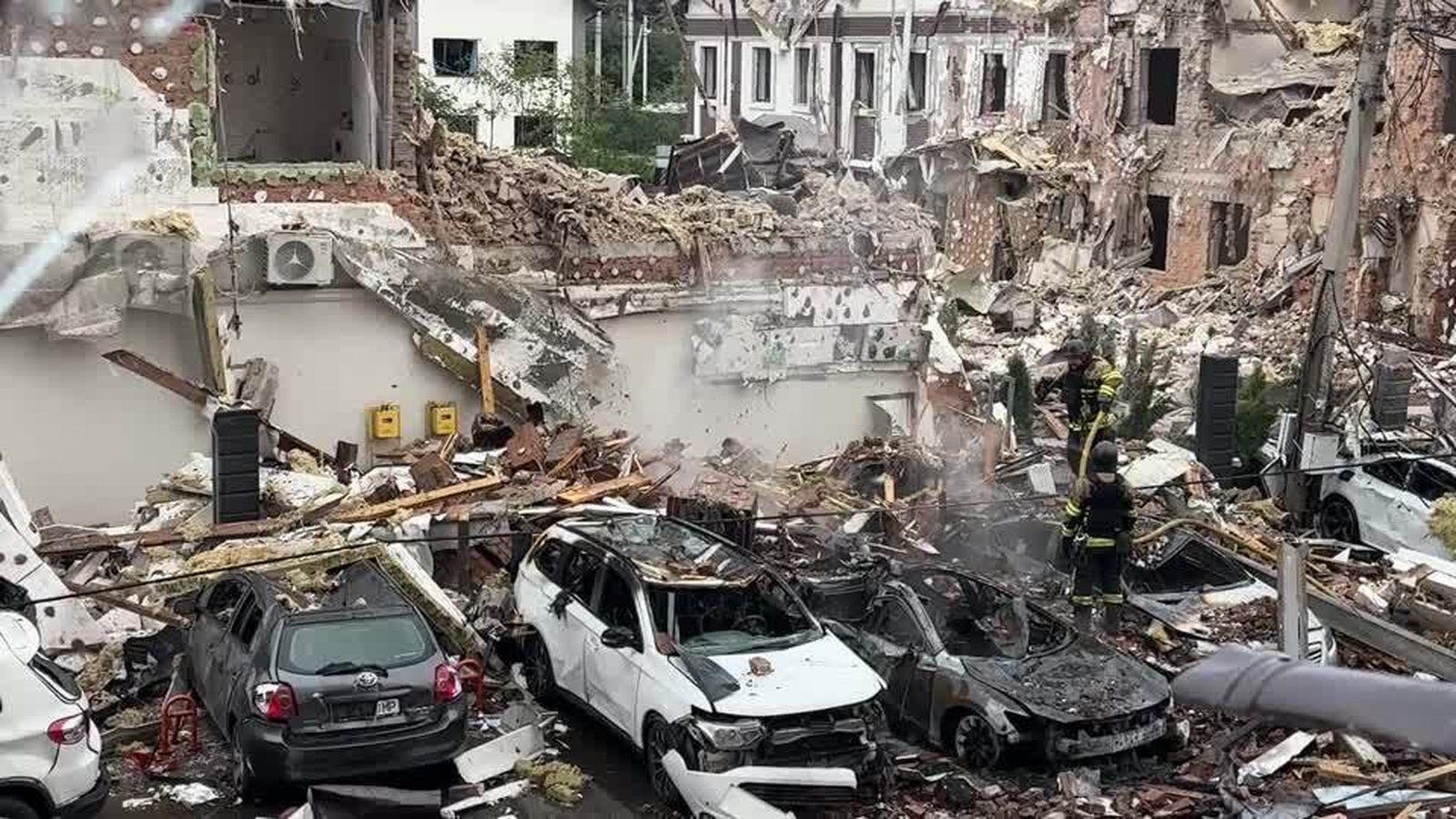
Read more on post.
Kyiv has come under heavy drone and missile bombardment this morning, in what independent monitors said was one of the biggest Russian attacks on the Ukrainian capital and surrounding region since the war began.
At least three people were killed and about ten injured in the city, the head of Kyiv’s military administration said on the Telegram messaging app.
Ukrainian Foreign Minister Andrii Sybiha said Russia had launched a “massive” air attack on the country involving hundreds of missiles and drones.
He said the attack underlined the need for more punitive sanctions against Russia to force it to stop its aggression.
“Putin must feel the danger of continuing this war – personally for him, his buddies’ pockets, his economy, and his regime,” he posted on X, referring to Russian President Vladimir Putin.
“That is what can make him stop this senseless war.”
Several other regions were also hit in the strike, with at least 16 people, including three children, injured in the southern city of Zaporizhzhia, authorities said.
Several buildings were damaged and on fire in Zaporizhzhia, footage posted on social media channels in the area showed.
In Kyiv, drones flew over the city and anti-aircraft fire rang out for several hours, according to Reuters witnesses. Loud explosions were also heard. The attack was continuing as of 9.15 local time (7.15 Irish time).
Kyiv’s Mayor Vitali Klitschko said a fire had broken out at a state cardiological hospital as a result of the attack.
Some residents fled to metro stations deep underground for safety, sleeping on makeshift beds or sitting on deck chairs following events on their phones.
Neighbouring Poland closed airspace near two of its southeastern cities and its air force scrambled jets in response.
Breaking News
‘My tears could help people survive brain tumours’
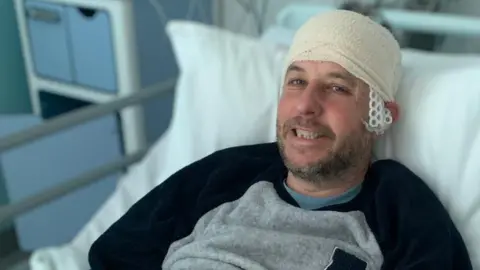
Read more on post.
Lynette HorsburghNorth West
A father with an incurable brain tumour has donated his tears to a pioneering study that could revolutionise how brain cancers are detected because he wants to “make a difference”.
Alex Davies was initially treated for epilepsy but months later scans revealed he had a brain tumour and was told he may only have 12 to 18 months to live.
The 49-year-old is now taking part in research at the Manchester Cancer Research Centre exploring if tear fluid can identify glioblastoma, the most aggressive form of brain tumour.
He is hoping the study will result in earlier diagnoses and ultimately save lives.
Mr Davies, from Lostock, Bolton, started suffering seizures in 2023 before later undergoing surgery, chemotherapy and radiotherapy.
Follow-up scans initially showed no evidence of cancer but later tests discovered the tumour was growing back and he is now receiving palliative care at home.
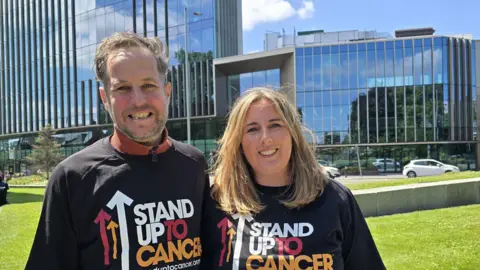 Cancer Research UK handout
Cancer Research UK handoutMr Davies, who worked at Network Rail before his diagnosis, said he was relatively fit with no health conditions when he “collapsed out of the blue”.
“It took months to get to my diagnosis and my initial MRI scan didn’t spot the tumour,” he said.
“My symptoms worsened over about three months including severe headaches, my speech became affected as well as my balance and I was getting confused.”
The father-of-two continued: “If helping with this research could mean someone like me can be diagnosed sooner, it offers real hope for the future.”
Mr Davies’ wife Emma said it was a “really horrible time for us”.
She said if a simple tear test could be used to bring a diagnosis forward it “would improve that awful time for so many others in the future”.
Thanks to nearly £500,000 funding from Stand Up To Cancer – a joint fundraising campaign from Cancer Research UK and Channel 4 – the study led by scientists at the University of Manchester has expanded to include larger-scale trials.
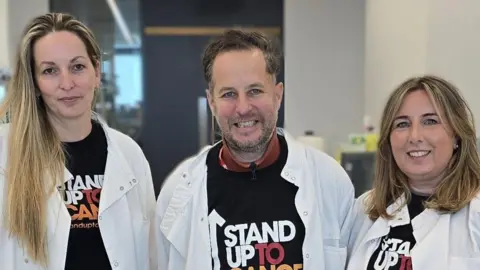 Cancer Research UK handout
Cancer Research UK handoutResearchers have described the test as a “liquid biopsy” and said the “world-first approach” could pave the way for faster, cheaper and less invasive brain cancer diagnosis.
If successful, the test could be rolled out to GP surgeries which would allow patients to receive a diagnosis much earlier.
Prof Petra Hamerlik, who lost her father to glioblastoma at a young age, is leading the project.
She said the research had not previously been explored to diagnose brain cancer.
“My team is currently developing a tear-protein-based classifier that can differentiate brain cancer patients from healthy volunteers with high levels of accuracy,” she said.
“If successful, we’ll seek further funding to develop a tool that can be rapidly deployed across health services, ultimately helping patients like Alex receive a timely diagnosis and better outcomes.”
-
Politics5 days ago
European Parliament snubs Orbán with vote to shield Italian MEP from Hungarian arrest
-
Culture2 months ago
Fatal, flashy and indecent – the movies of Adrian Lyne revisited
-
Environment1 week ago
Key oceans treaty crosses threshold to come into force
-
Culture3 weeks ago
Life, loss, fame & family – the IFI Documentary Festival in focus
-
Culture5 days ago
Twilight at 20: the many afterlives of Stephenie Meyer’s vampires
-
Culture2 weeks ago
Farewell, Sundance – how Robert Redford changed cinema forever
-
Culture4 weeks ago
What is KPop Demon Hunters, and why is everyone talking about it?
-
Health6 days ago
EU renews support for WHO’s Universal Health Coverage Partnership


